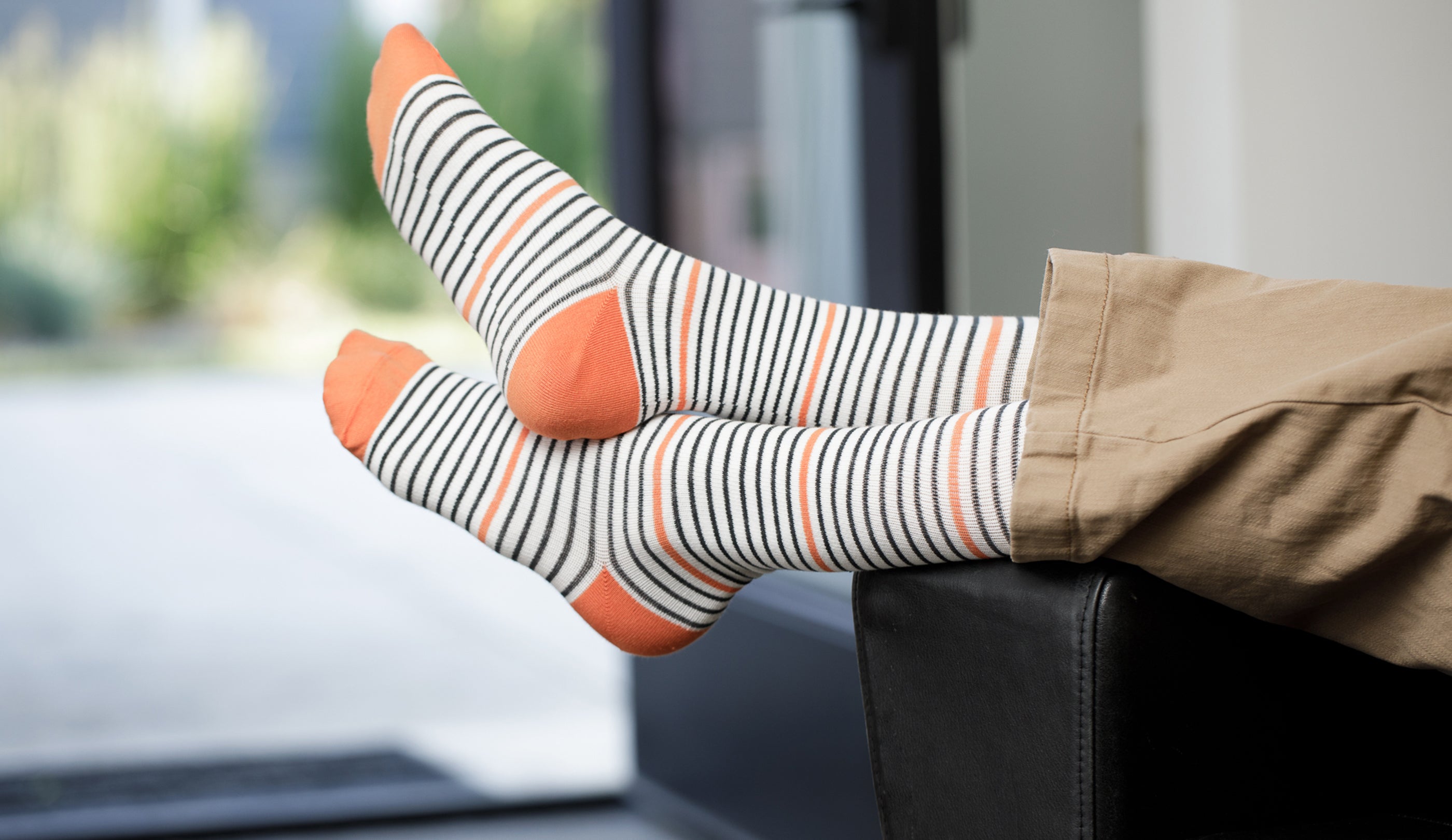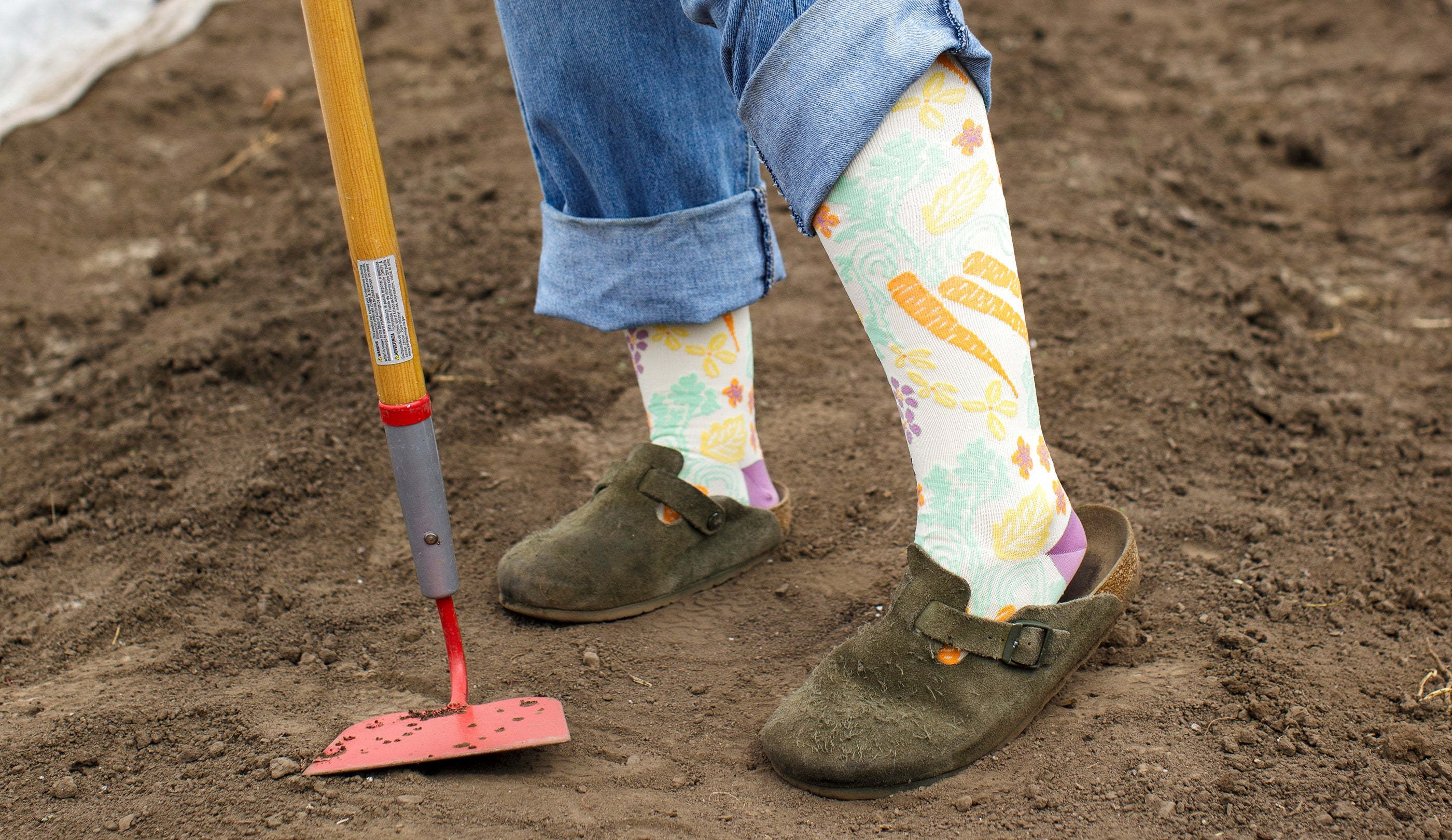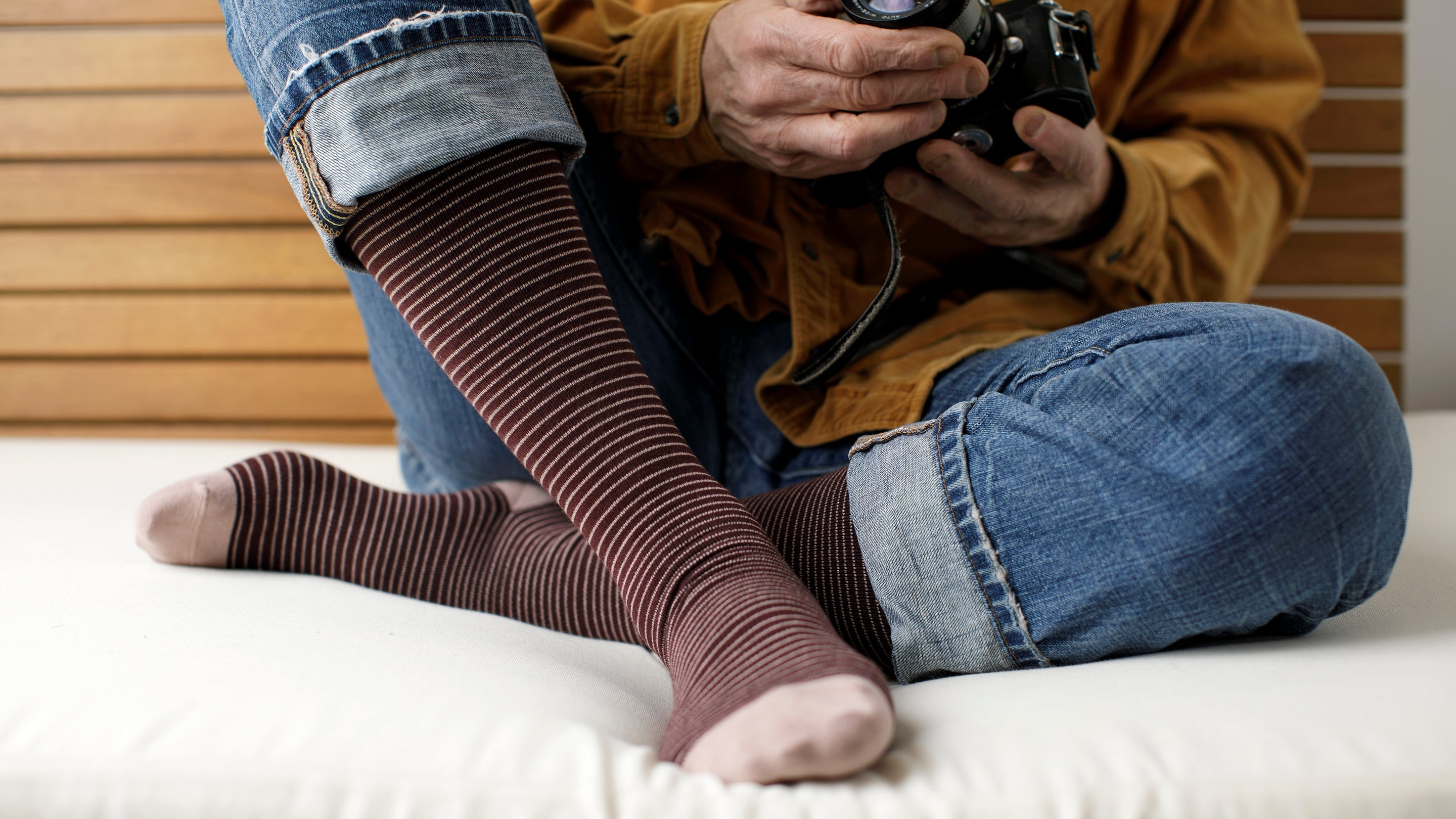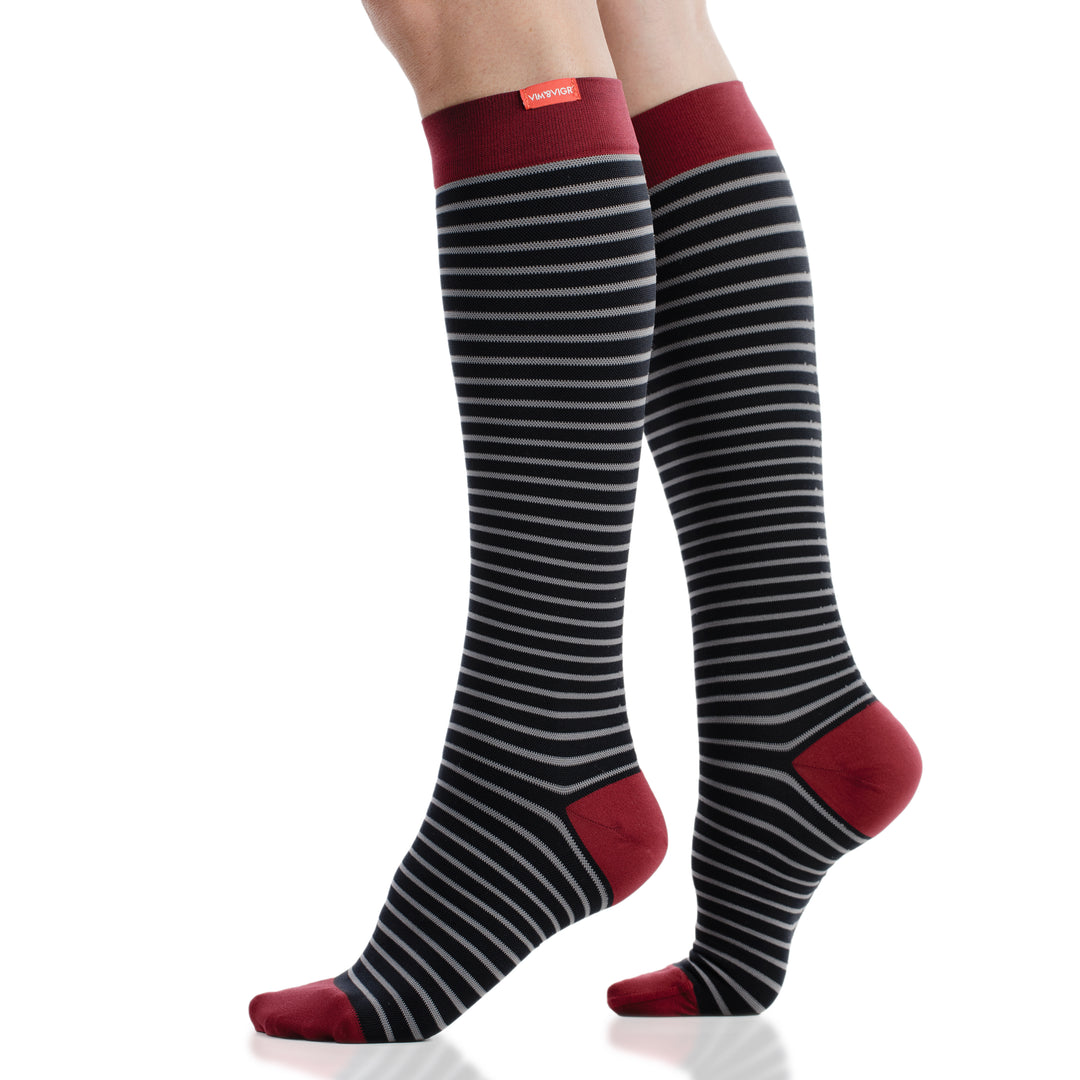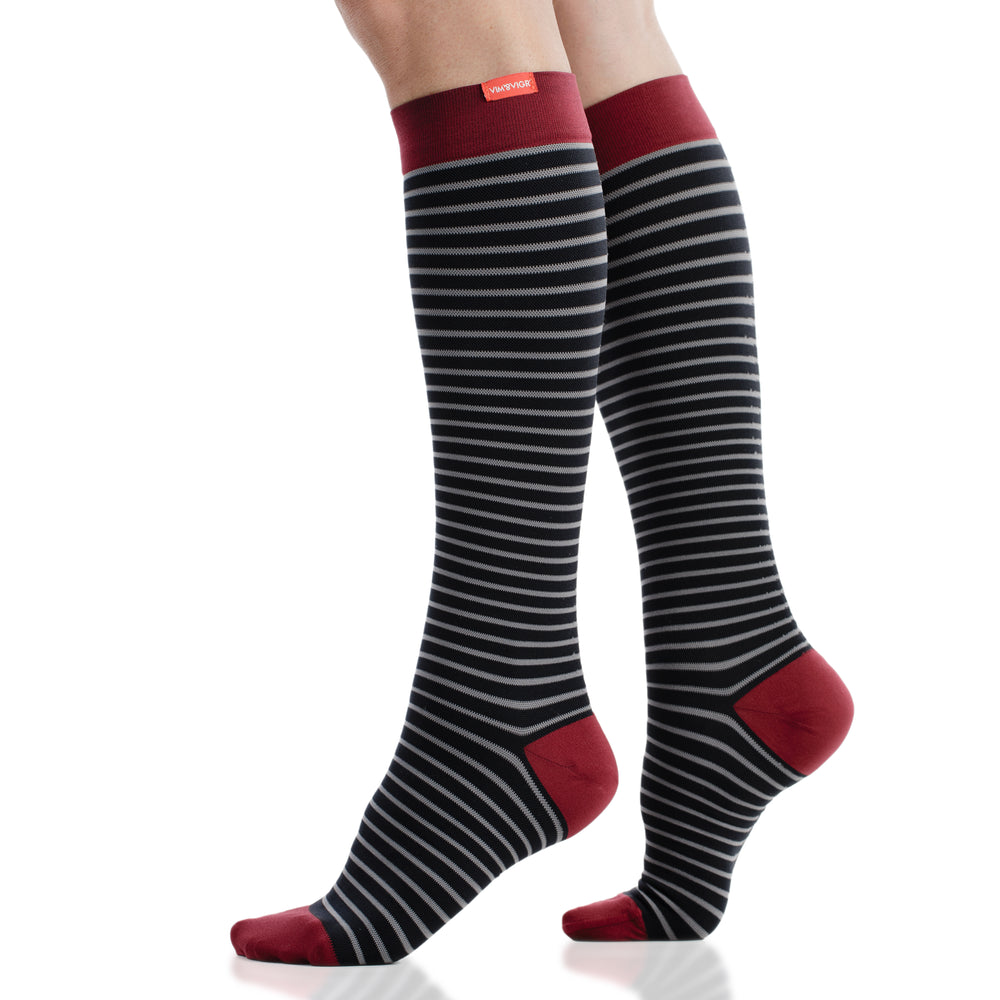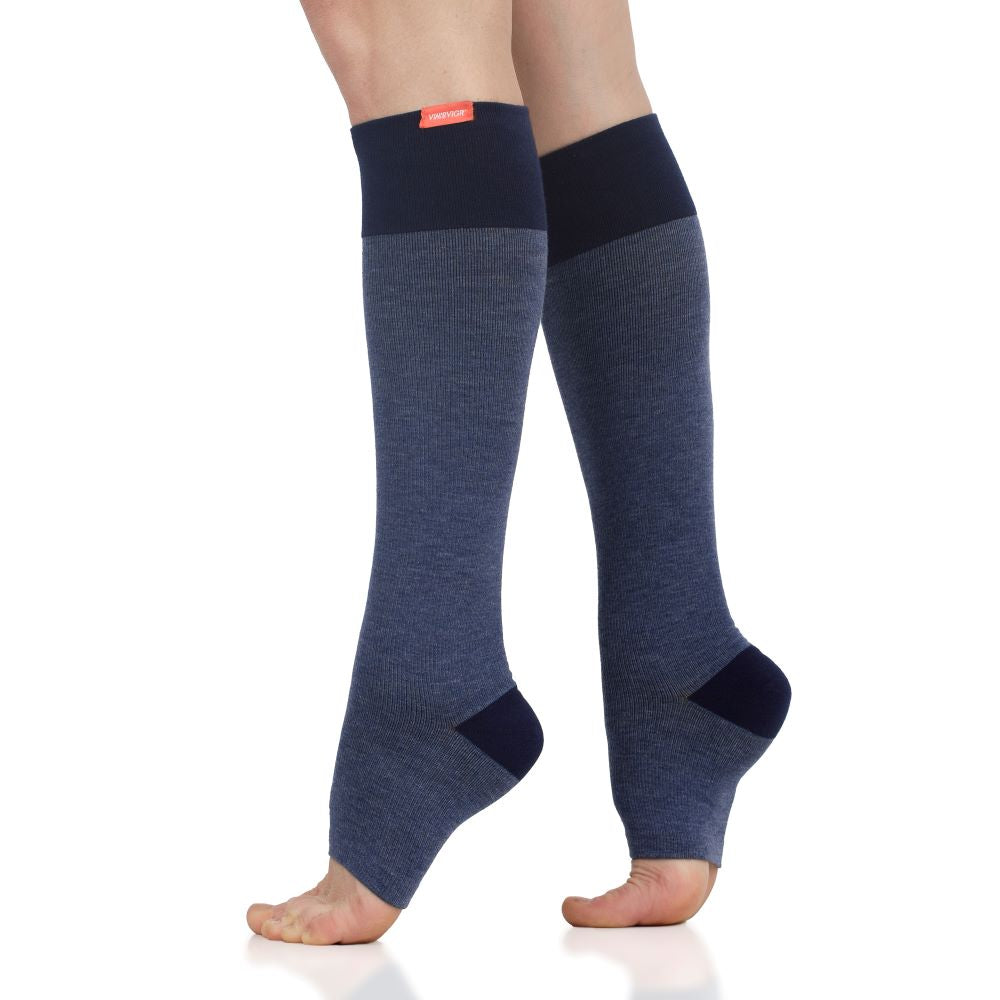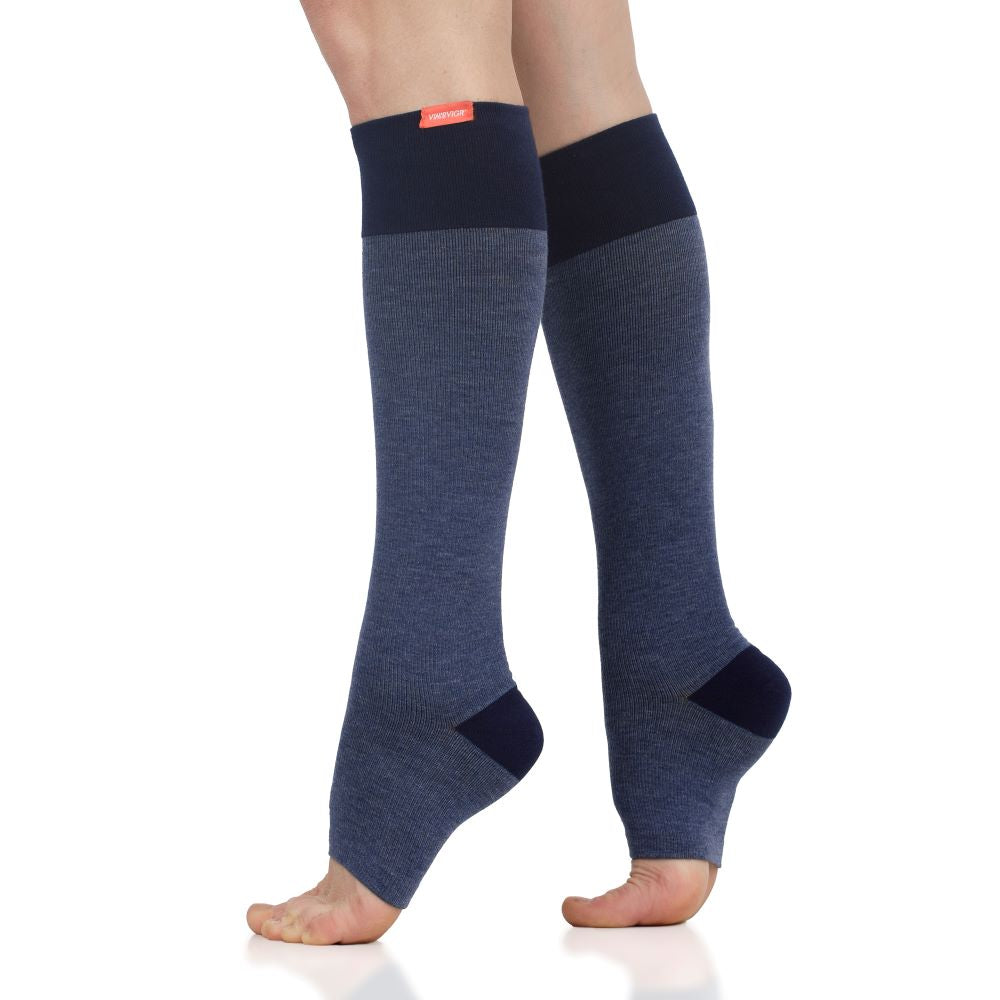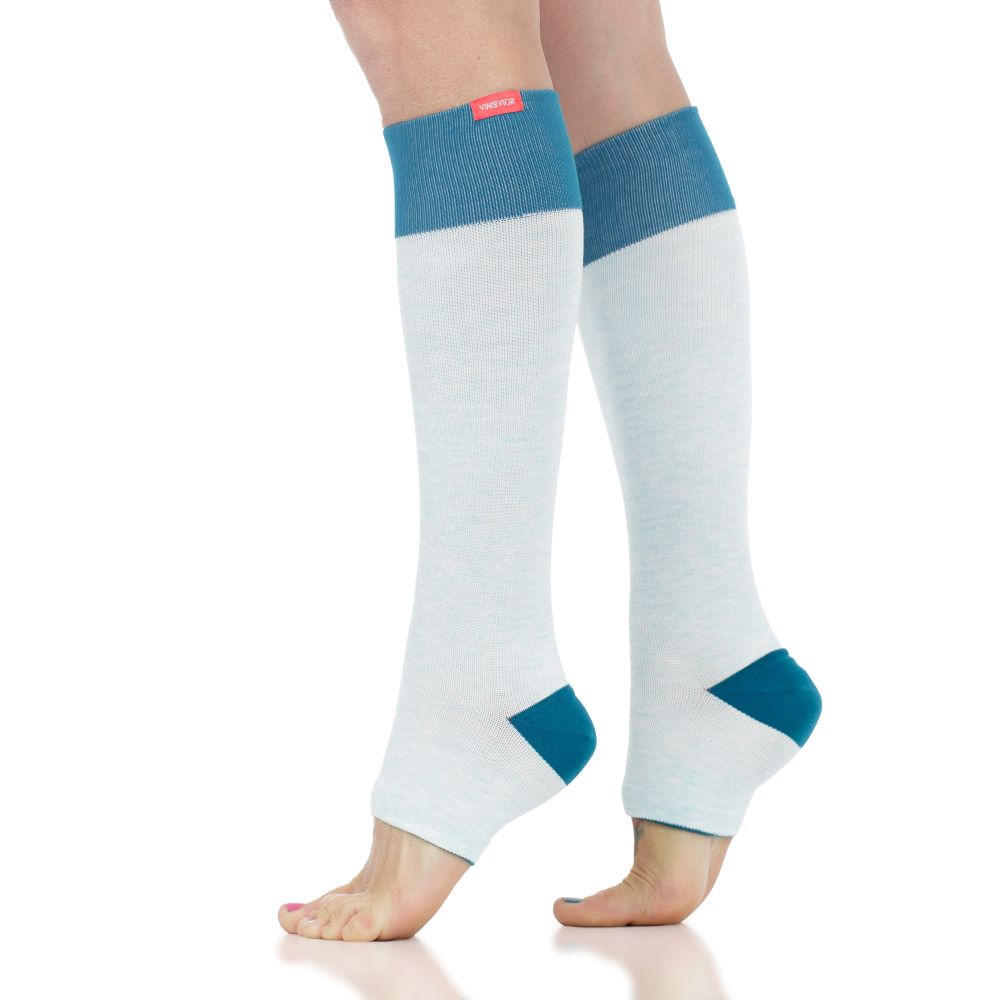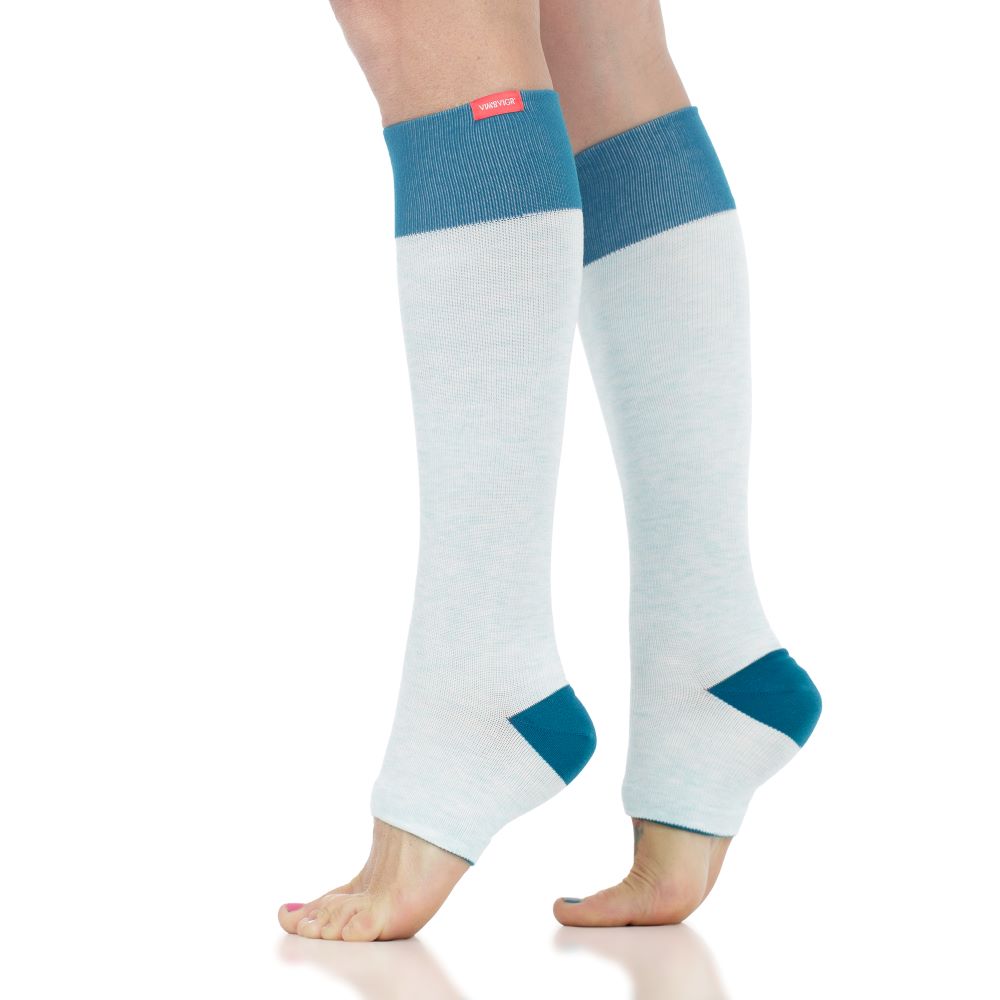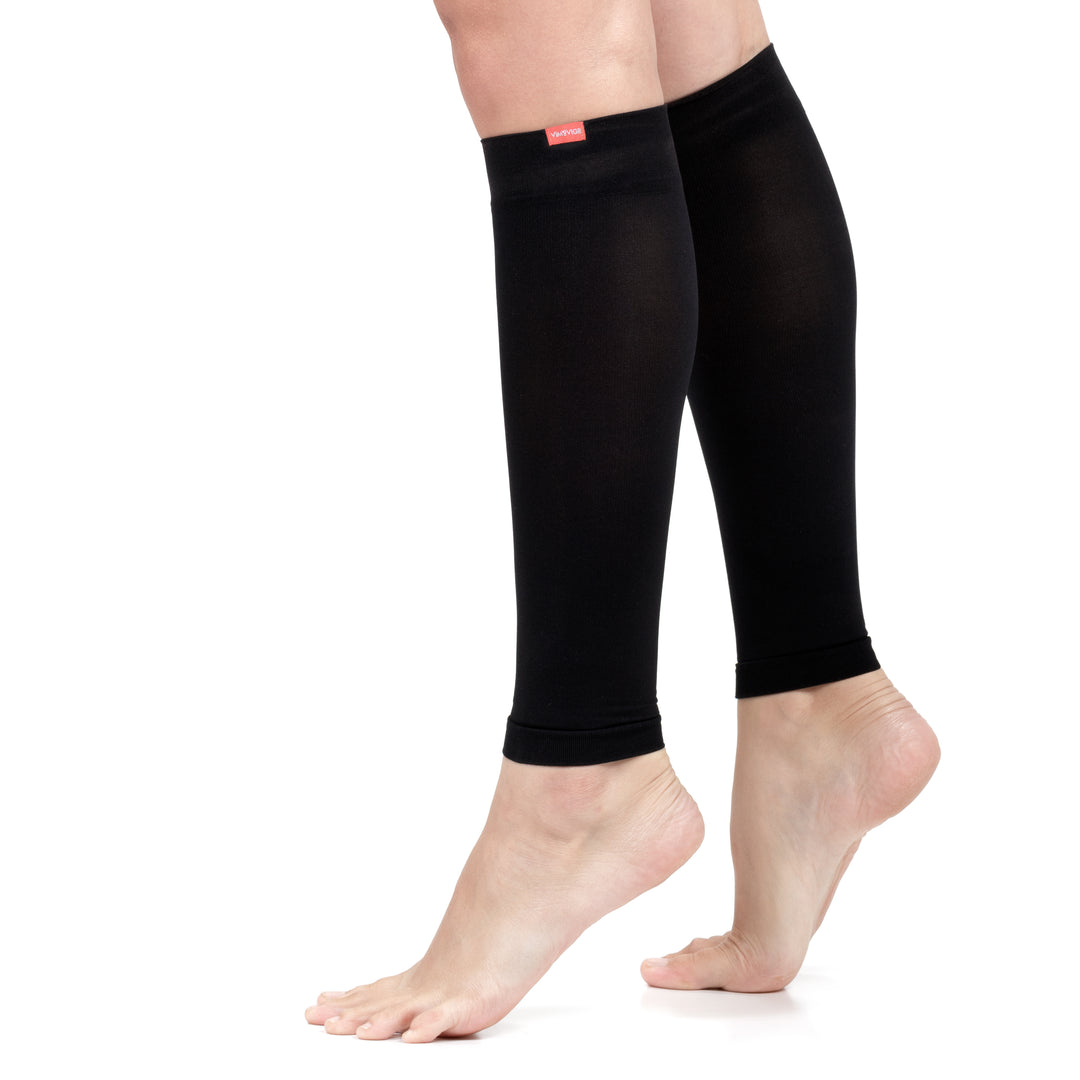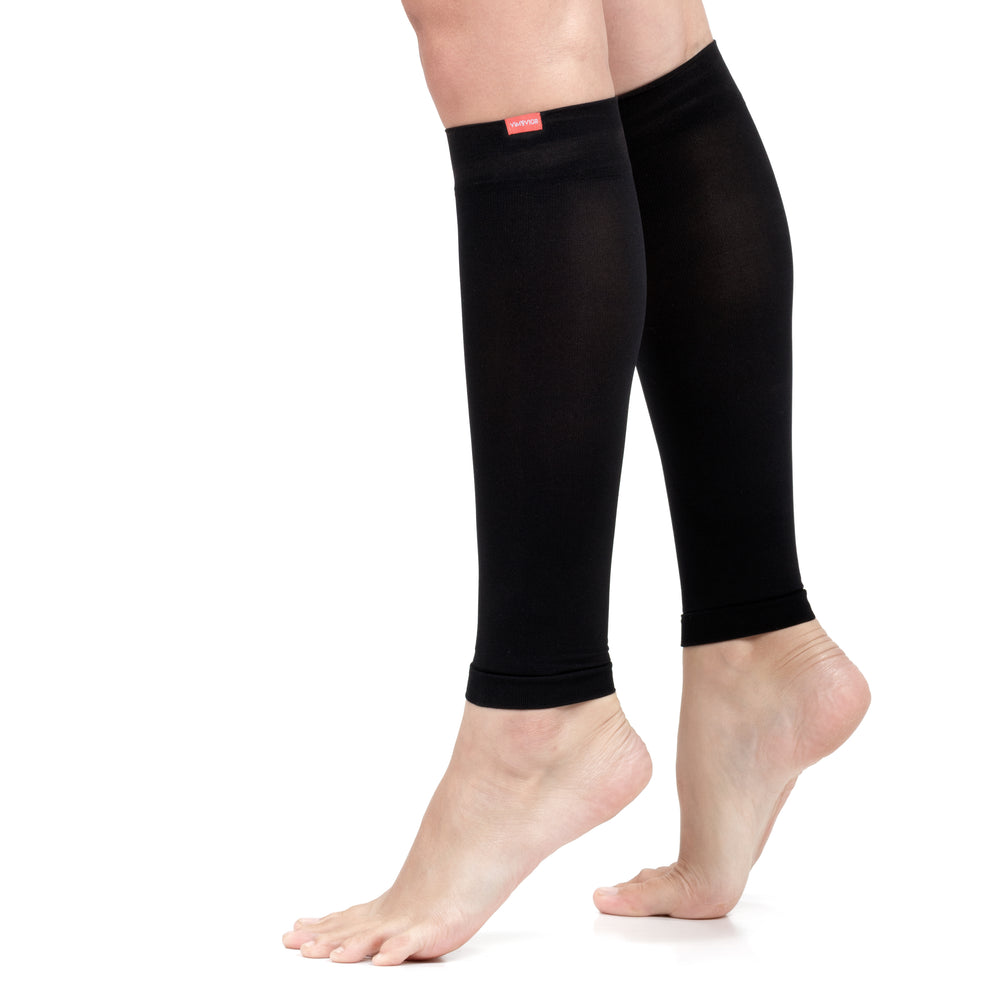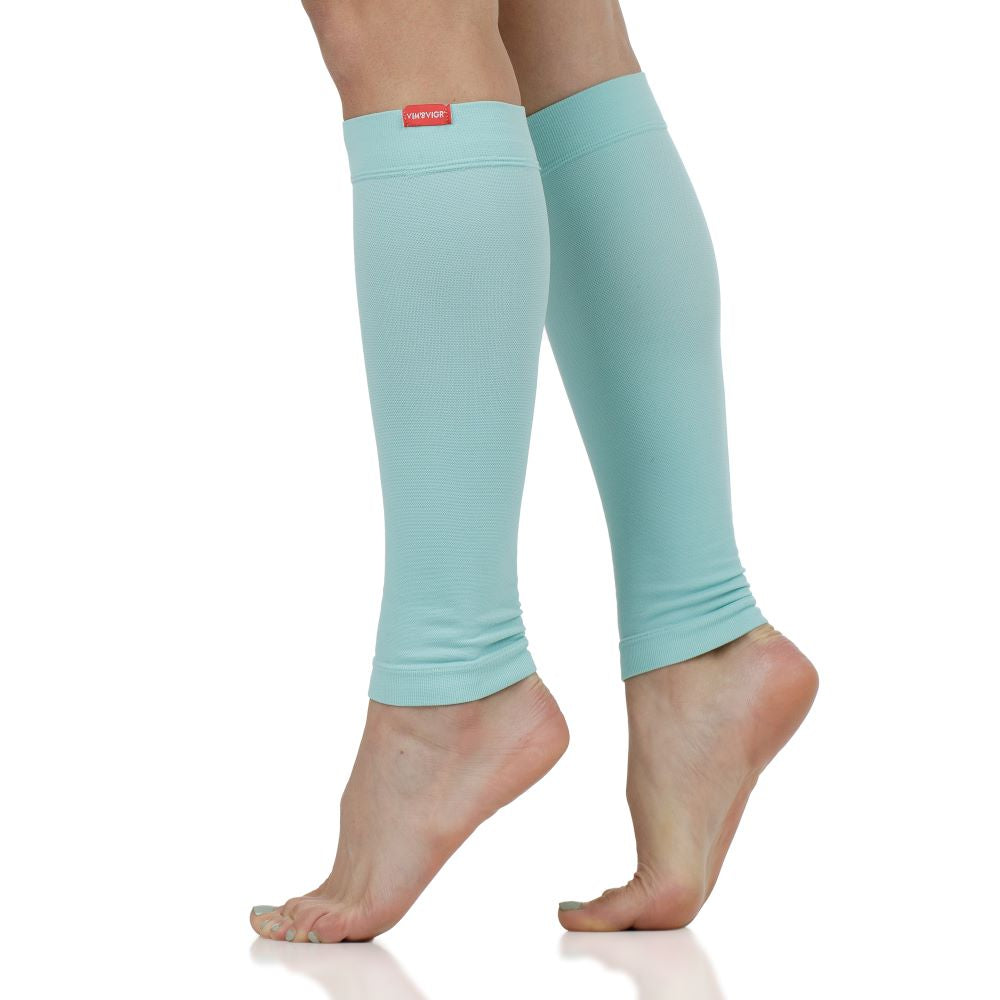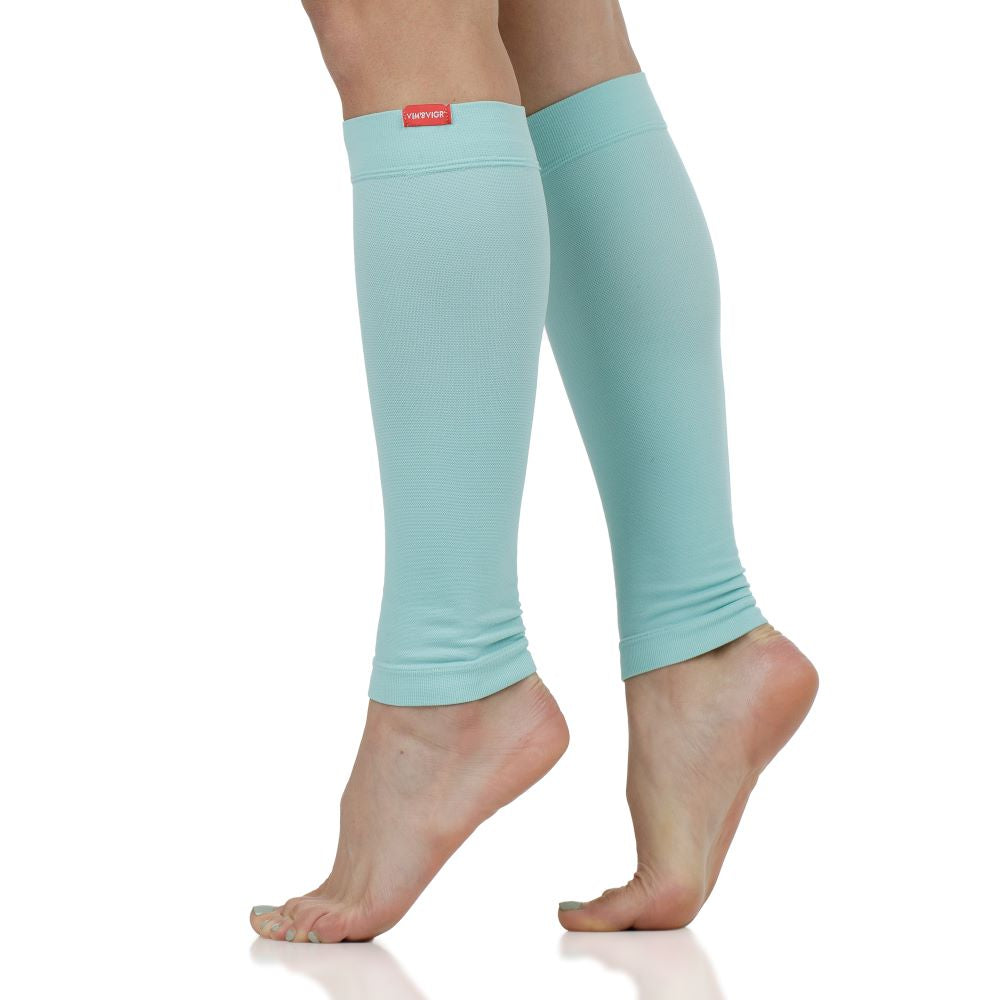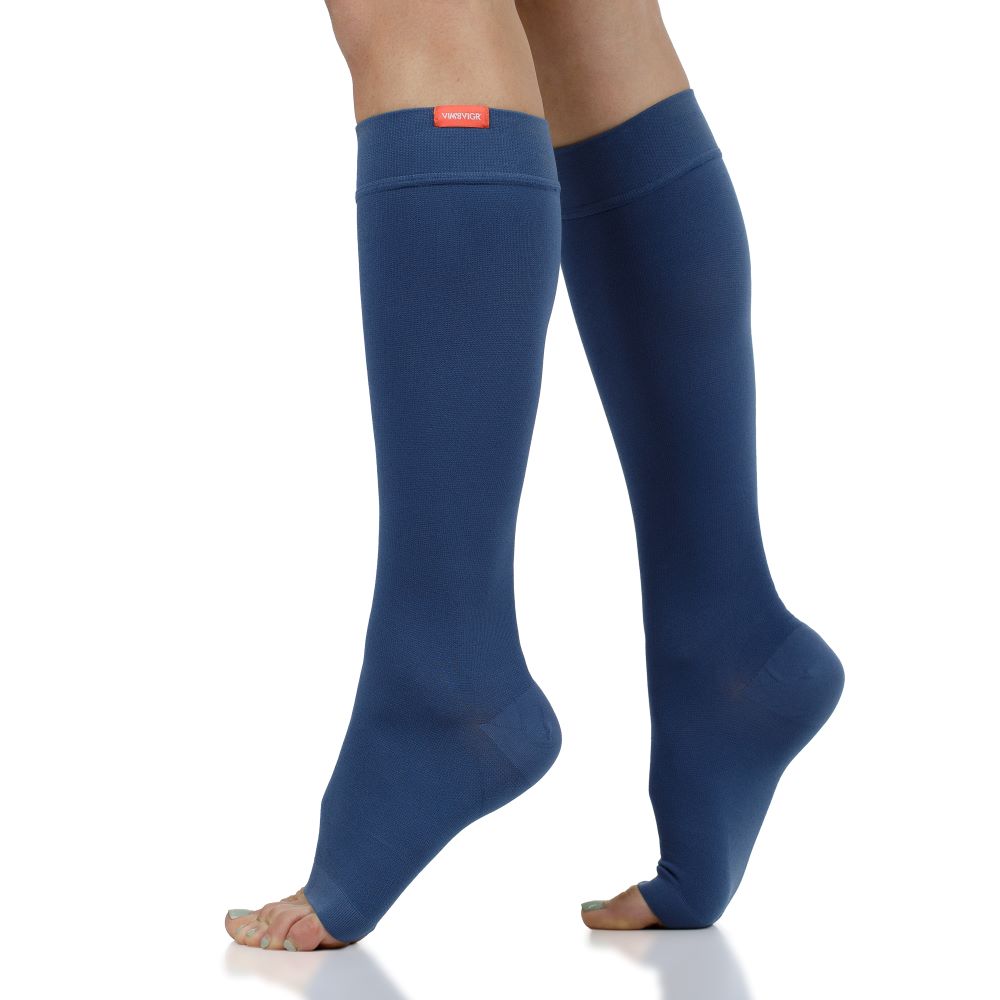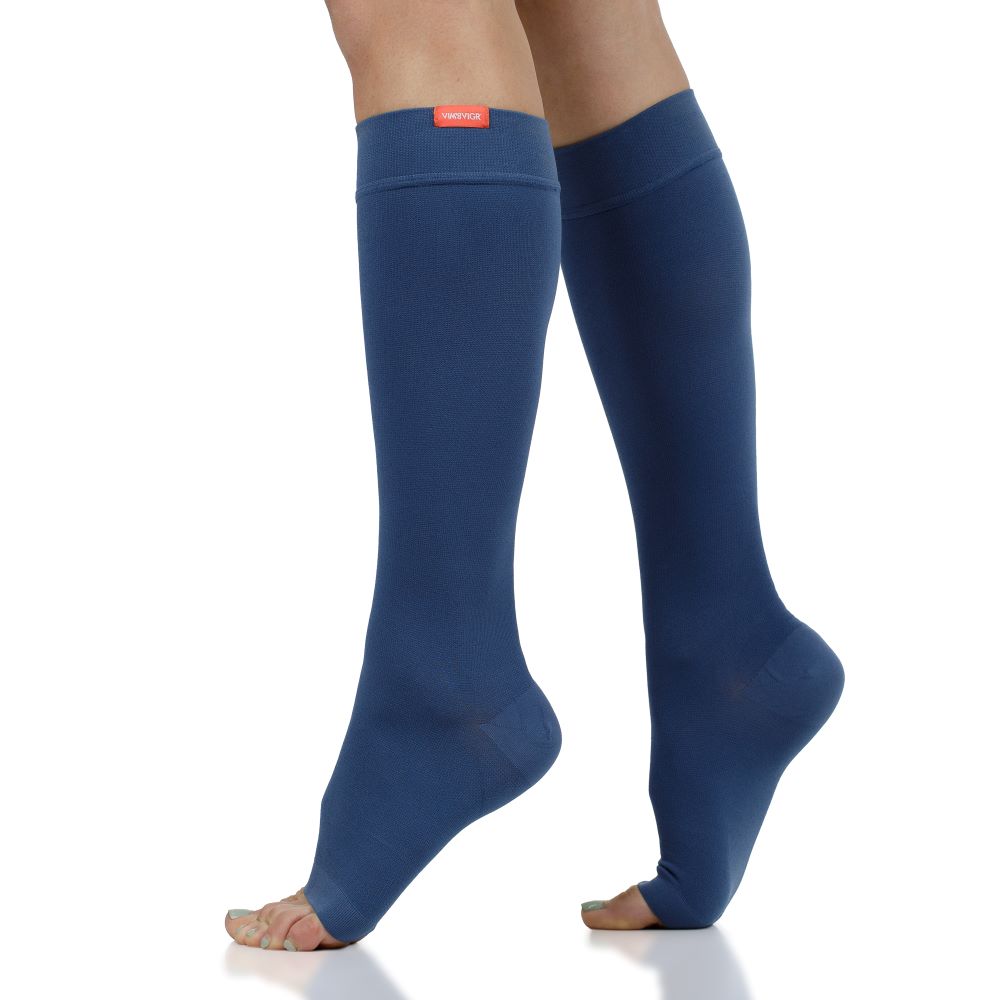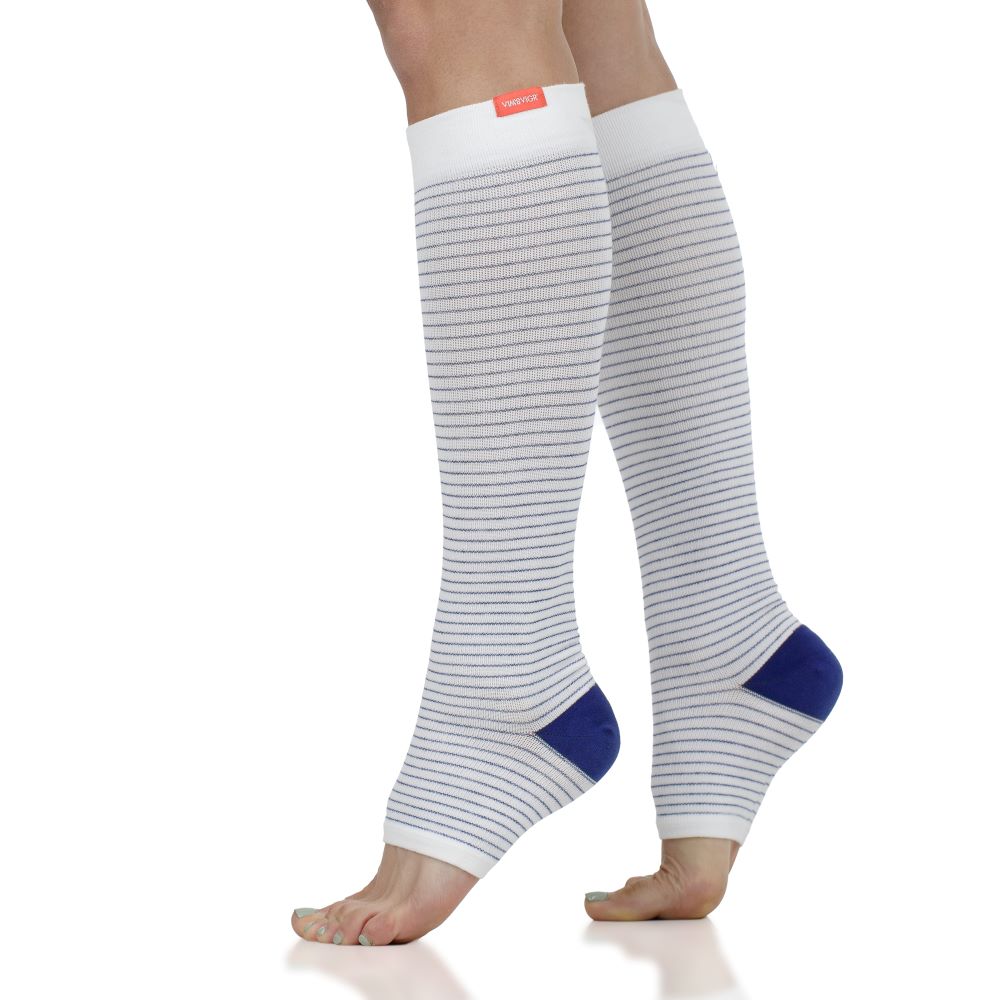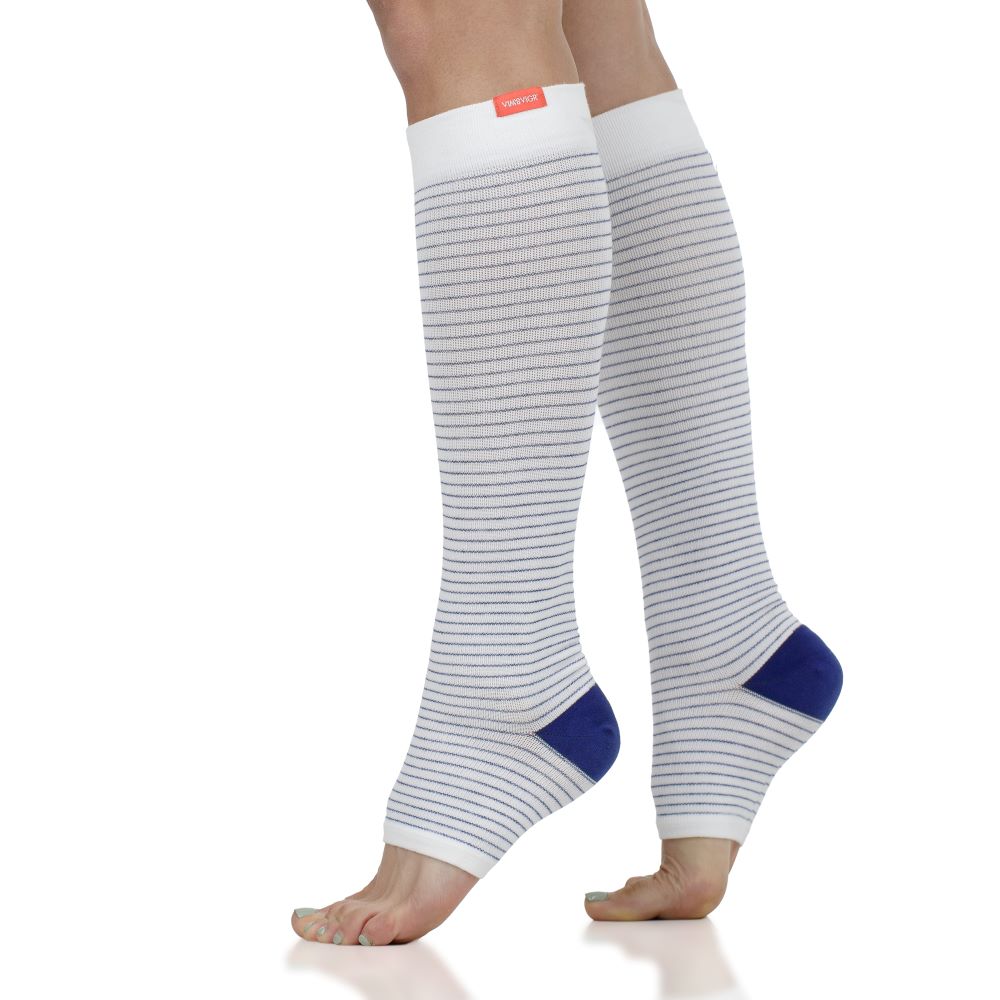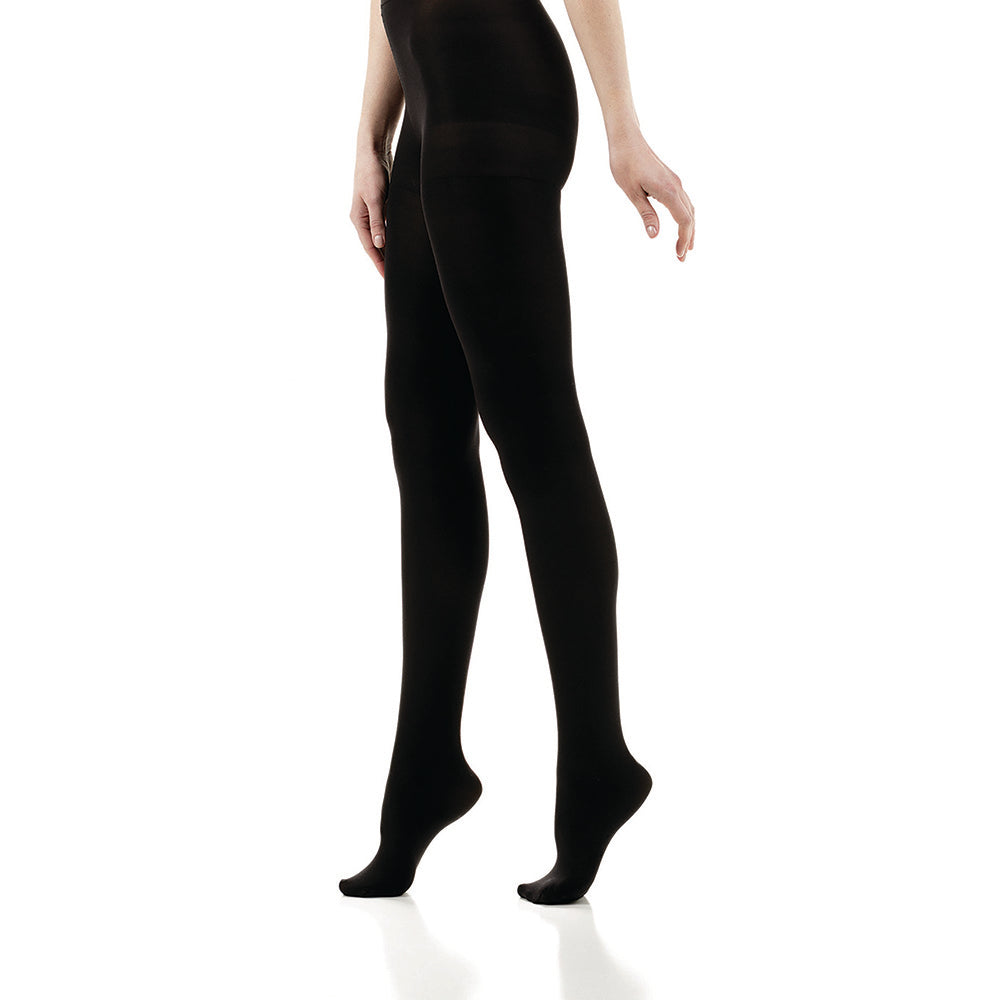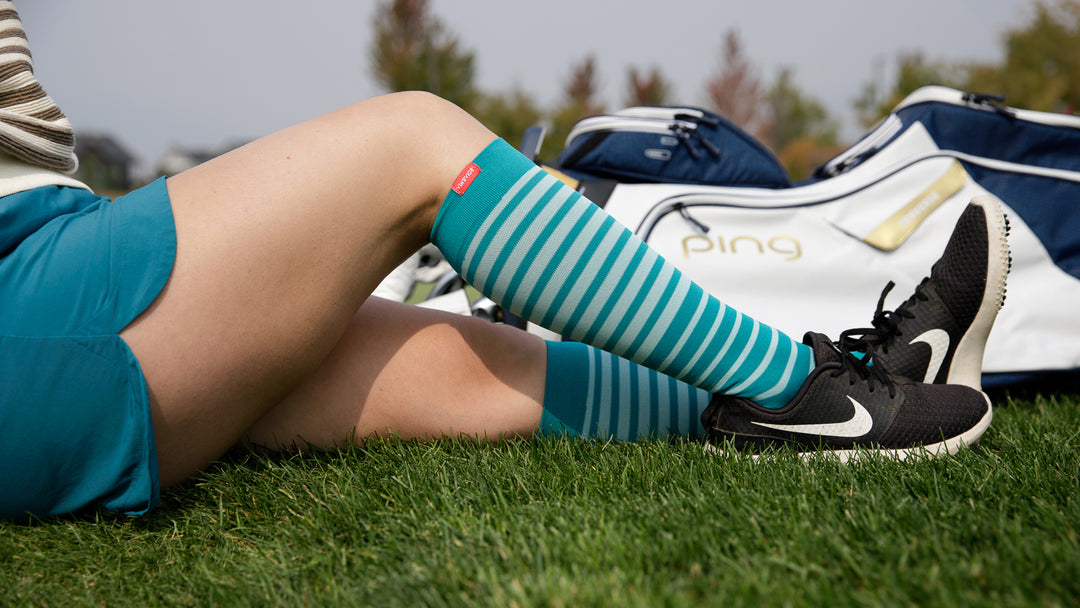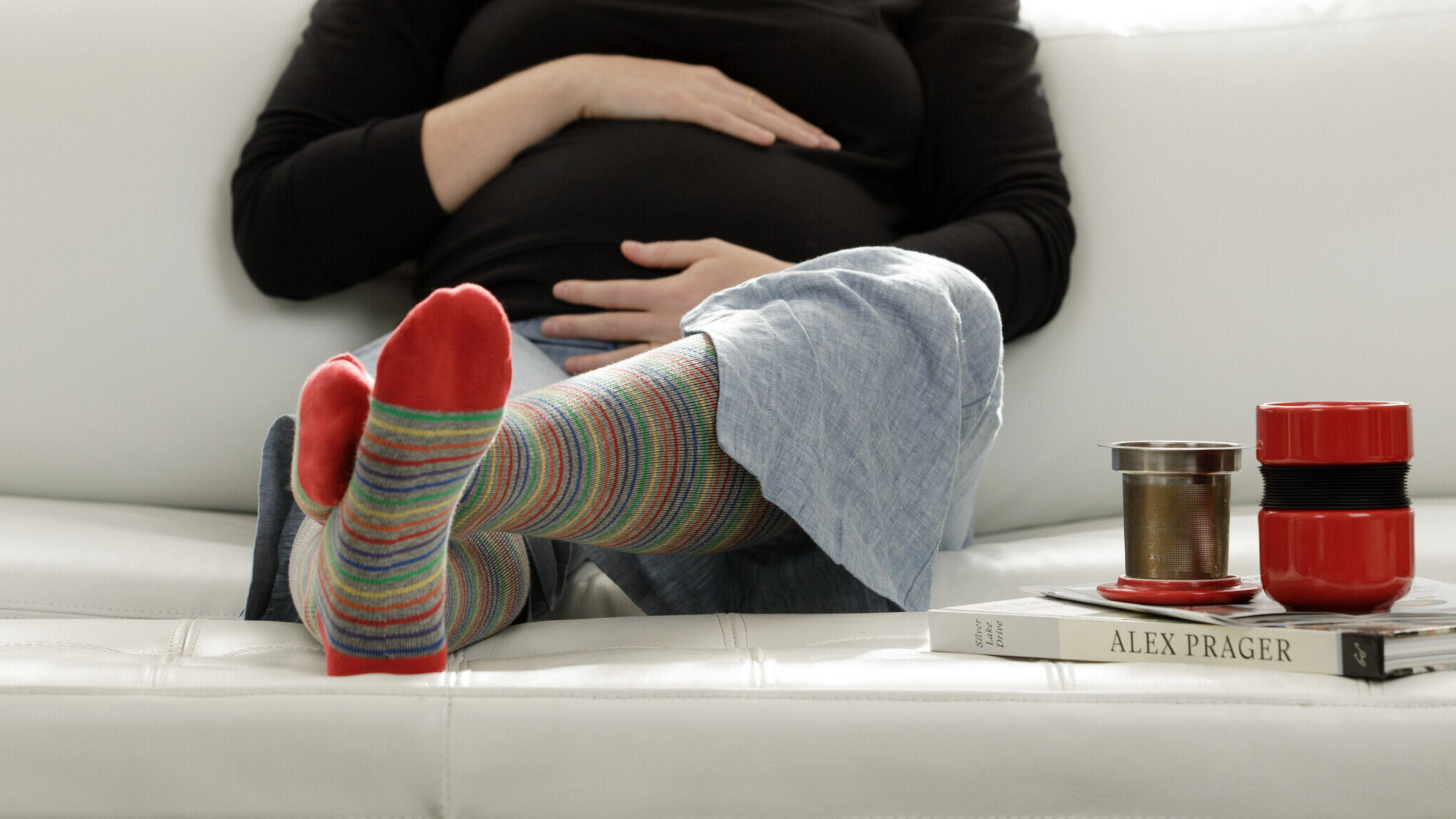
Wide Calf Compression Socks
BENEFITS OF WIDE CALF COMPRESSION SOCKS
- Energize your legs
- Reduce swelling
- Alleviate achiness & heaviness
- Aid in muscle recovery
- Ease discomfort
- Prevent varicose veins
- Protect the overall health of your legs
The main difference between regular compression socks and wide calf compression socks is exactly what it sounds like - Wide calf compression socks are wide in the top sleeve part of the sock. Compression socks are often prescribed by medics in specific cases when someone suffers from circulatory problems, chronic illness, or swelling. Due to their compressive nature, some individuals with large calves find compression socks hard to get on. This is why we created our wide calf sizes, so compression can be stylish and comfortable for all. Many people must wear compression socks for a variety of reasons, and our wide calf compression socks have proven to be useful for preventing and aiding many.
In conditions like lymphedema, one of the key symptoms is swelling in the legs, doubled up by pain and discomfort. Compression therapy reduces pains and aches in the lower leg, while bringing down inflammation and swelling. Some people who experience extreme swelling benefit from the comfort of our women's wide calf compression collection. lymphedema is one of many conditions that is benefitted by compression socks (and wide calf compression socks). Always consult with your doctor if you're are unsure if compression is right for you.
What do the compression levels mean?
Graduated compression stockings and socks are measured by the tightness of the material - i.e., the compression level. These are:
- Moderate (15-20 mmHg) - The most accessible compression socks, suitable for all-day wear. They support the lower leg muscles, stimulate blood flow, and help reduce swelling and discomfort, without being too tight. This level is also recommended during pregnancy and for active people;
- Firmer (20-30 mmHg) - Usually prescribed by a medical professional, these socks are used for moderate edema, DVT, or for people recovering from surgery;
- Firm (30-40 mmHg) - Specifically prescribed for health conditions such as venous insufficiency.
Compression socks should be tight, but not uncomfortable. They should feel like a firm hug on your legs.
Other Collections:

